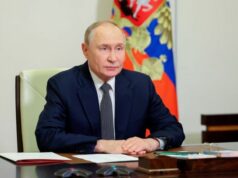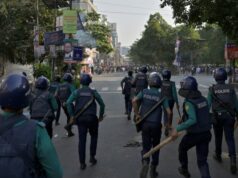National security has predominantly been looked through the prism of hard power. And military might has often been seen a barometer of it. That idea now seems outdated in a changing world order where economic might is used as a tool of coercion, technology can be weaponised and energy used as a chokehold.
We need to look at national security in a broader perspective, says former diplomat Arvind Gupta, who has also served as India’s Deputy National Security Advisor.
There’s long been a debate that climate change, food, water, etc. are development issues, having little to do with national security. The latter means defending a nation’s sovereignty and territorial integrity. “But there are also people living in a nation, so the human security aspect also comes in. And when people don’t feel safe, it has an immediate impact on national security,” Gupta told StratNews Global. It is necessary to look at India’s national security matrix and see how non-traditional security issues fit into that, he adds.
He and journalist Rajesh Singh have written a book titled ‘The Silent Enemy: Non-Traditional Challenges to National Security’.
Awareness about non-traditional challenges to national security is growing but this must also percolate down to the people, says Rajesh Singh. Each one of us is a stakeholder and needs to understand what is at stake, and what we can do at our level, he adds.
Demography
The importance of human capital is uncontested, says Arvind Gupta. Today’s youth have aspirations and are impatient, so there’s a need to cater to everybody’s needs. “If we do not catch up with those aspirations, I think we are in trouble. The line between demographic dividend and demographic liability is very thin.”
We have to look at demography as a driver of future geopolitical balances, he argues, pointing to decreased fertility rates in countries such as Germany, Russia and Japan.
Education and skilling are important aspects when it comes to the youth, says Rajesh Singh. Key questions here include: do we have the right education, is it inclusive and does it provide for adequate skill development? “I feel we have a lot of distance to cover in matters of skill; if you don’t have enough skilled people, demographic dividend become a liability.”
Technology
India needs to own some critical technologies if it has to maintain its strategic economy, says Arvind Gupta. If we remain just consumers of technology, we will be vulnerable to blackmail and even tech enslavement, he argues.
“Today, technology is not simply about making something and selling it but is connected with national security, national development. So we require a complete relook at technology”.
He also bats for synergising the various tech missions and advocates civil-military fusion.
Nitin A. Gokhale is a media entrepreneur, one of South Asia's leading strategic affairs analyst and author of over a dozen books so far on military history, insurgencies and wars.
Starting his career in journalism in 1983, he has since led teams of journalists across media platforms.
A specialist in conflict coverage, Gokhale has covered the insurgencies in India’s North-East, the 1999 Kargil conflict and Sri Lanka’s Eelam War IV between 2006-2009.
Gokhale now travels across the globe to speak at seminars and conferences, and lecture at India’s premier defence colleges. He has founded three niche portals, Bharatshakti.in, stratnewsglobal.com and Interstellar.news.




